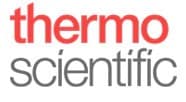Scientist to Scientist: Sustainability in Lab Plastics
An Interview with Emelia DeForce, PhD, Senior Scientist at Thermo Fisher Scientific.
What strategies or “sustainability wins” are you implementing to make consumable products more green or sustainable?
Thermo ScientificTM NalgeneTM products were the first ACT labeled laboratory consumables. The ACT label is a virtual label that provide an environmental impact score for each product to help users make informed and sustainable product choices. Created by the non-profit My Green Lab, the scores are based on the product’s environmental impact of manufacturing practices, energy and water use, and end-of-life disposal.
Although many lab consumables are single use and have a bad reputation for sustainability, we want to ensure that the quality of our products remains the same, so the need to implement sustainability surrounding the manufacturing and end of life of the product is crucial. The ACT label helps address this issue by incentivising changes to the manufacturing process and providing transparency to our customers.
Are researchers demanding greener products?
Yes. In a recent survey, more than 70 percent of respondents told us that they’d like their labs to go “greener.” Scientists are demanding more sustainable products. They understand global climate change and know that inherent wastefulness in research is part of the problem. Many are frustrated by the lack of attention to this issue by manufacturers and the industry as a whole.
What systematic progress is being made?
Regulatory measures to address the issue of plastic waste are increasing. For example, in 2022 the UK will implement a tax on packaging that does not contain 30% or more recycled material. The U.S. is following suit with the Break Free from Plastic Pollution Act of 2020.
When passed, it will address waste, recycling, manufacturing, and the export of plastic waste. This is good news — it will bring more green practices into laboratory products.
How do we need to change our mindset to support sustainability?
We’re going to have to shift our culture as a society and more specifically as manufacturers in order to implement change. We need better technology to address municipal sorting, recycling, and reuse of plastic material. Companies must adopt better strategies and provide transparency in the product manufacturing process.
Most importantly, consumers must make purchasing decisions based on best environmental practices to create demand for these changes.

ACT responsibly. Buy sustainably.
Do your lab products pass the test?
Use the ACT label to help you make more environmentally informed purchases when you need to restock. At Thermo Fisher Scientific, we’re continuously assessing and improving the health, safety, and environmental impact of our products, processes and services.
By ACT labeling, we provide the transparency needed to make an informed choice while purchasing a product. We strive to offer alternatives that reduce waste and are both less hazardous and more energy efficient. Making greener choices in the lab is now easier — choose Thermo Scientific Nalgene products that are ACT labeled.
How to read an ACT label: Most categories are rated on a scale of 1 to 10, with a lower score indicating less impact on the environment. Visit specific product pages to see the digital ACT labels.
Content provided by:













